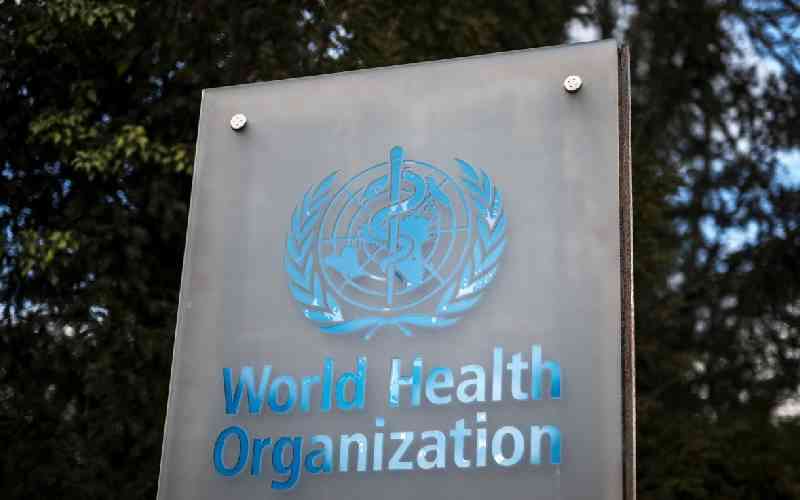The World Health Organisation (WHO) has warned Kenyans to be vigilant against a fake antibiotic in the market.
WHO has issued a medical alert on counterfeit Augmentin drug found in Uganda and Kenya.
Augmentin is a broad-spectrum antibiotic used in the management of infections, including lower and upper respiratory infections and urinary tract infections, among others.
“The packaging of the falsified product appears to be a close imitation of the genuine product manufactured by GSK (GlaxoSmithKline),” WHO said in a statement.
The manufacturer has disowned the falsified version.
WHO has asked anyone with the bogus drug not to use it.
It says anyone who may have taken it or is experiencing some side effects should see a doctor and report to authorities.
The organisation said it was recently informed by the Uganda National Drug Authority that falsified Augmentin was found in Uganda, having been discovered through routine post-marketing surveillance.
The batch number of the falsified product is 786627 that was manufactured in August 2016 and was supposed to expire at the end of this month.
“It should be noted that this is the second WHO medical product alert issued on falsified Augmentin in the African region. The first WHO medical product alert No. 2/2018 was issued on March 2, 2018," said WHO.
Ministry of Health, through Pharmacy and Poisons Board, yesterday acknowledged it was aware of the matter.
“Pharmacy and Poisons Board would like to notify the general public of the following falsified Augmentin tablets circulating in Kenya and Uganda as per the WHO alert No. 9/2019,” said Dr F M Siyoi, the board’s chief executive officer.
He stated that the WHO alert is based on information relayed to the organisation’s rapid alert system and Interpol by the Pharmacy and Poisons Board (Kenya) and Uganda National Drug Authority (NDA).
He, however, advised the public to remain vigilant and report to the board in case they come across any of the counterfeit Augmentin.
“The board wishes to reassure the public of its commitment to safeguard the health of the public by ensuring only safe, quality and efficacious medical products and health technologies are available in the market,” Siyoi said.
WHO called for increased vigilance within the supply chains of countries likely to be affected by the falsified medical product.
It said increased vigilance should target hospitals, clinics, health centres, wholesalers, distributors, pharmacies and any other suppliers of medical products.
The agency urged the public to buy all medical products from authentic and reliable sources.
The WHO and Ministry of Health alert comes in the wake of information that a pharmaceutical outlet in Nairobi has been selling a drug, yet its own internal analysis recommended the drug’s immediate withdrawal from the market.
An internal report was carried by the company’s production manager on March 14, 2017, on comalasinin tablets batch number 1611105. Comalasinin is used to treat bacterial infections.
And a quality control (QC) report carried out on the same drug on November 24, 2016, indicated that comalasinin batch number 1611105 had failed assay test.
The two reports recommended that the drugs be immediately withdrawn from the market.
Surprisingly, according to an internal report seen by The Standard, the findings were released three months after the drug was released to the market.
Sales records from the company show the said product was first sold on September 28, 2016, to a chemist in Bungoma. Then it was sold throughout that year to pharmaceutical shops in Kakamega, Mombasa, Kisumu, Meru, Migori and Kirinyaga.
 The Standard Group Plc is a multi-media organization with investments in media
platforms spanning newspaper print
operations, television, radio broadcasting, digital and online services. The
Standard Group is recognized as a
leading multi-media house in Kenya with a key influence in matters of national
and international interest.
The Standard Group Plc is a multi-media organization with investments in media
platforms spanning newspaper print
operations, television, radio broadcasting, digital and online services. The
Standard Group is recognized as a
leading multi-media house in Kenya with a key influence in matters of national
and international interest.











